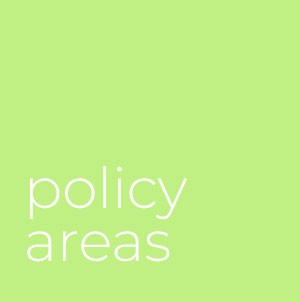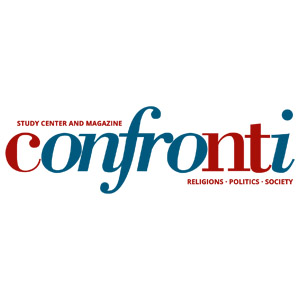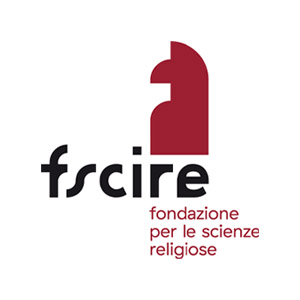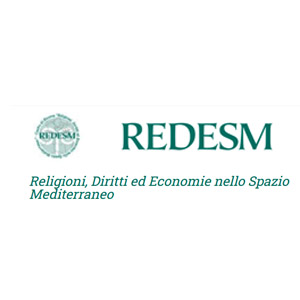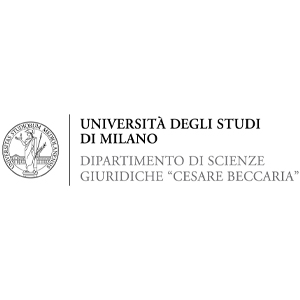Documents
 United Nations
United Nations
Universal Declaration of Human Rights
Adopted by General Assembly resolution 217 A (III) of 10 December 1948
[A/RES/217(III)]
Convention relating to the Status of Refugees
Adopted on 28 July 1951 by the United Nations Conference of Plenipotentiaries on the Status of Refugees and Stateless Persons (convened under General Assembly resolution 429 (V) of 14 December 1950 [A/RES/429]), held at Geneva from 2 to 25 July 1951.
Entry into force: 22 April 1954, in accordance with article 43
International Covenant on Civil and Political Rights
Adopted and opened for signature, ratification and accession by General Assembly resolution 2200A (XXI) of 16 December 1966 [A/RES/21/2200].
Entry into force 23 March 1976, in accordance with article 49
Article 27
In those States in which ethnic, religious or linguistic minorities exist, persons belonging to such minorities shall not be denied the right, in community with the other members of their group, to enjoy their own culture, to profess and practice their own religion, or to use their own language.
Convention on the Rights of the Child
Adopted and opened for signature, ratification and accession by General Assembly resolution 44/25 of 20 November 1989 [A/RES/44/25].
Entry into force: 2 September 1990, in accordance with article 49
Article 30
In those States in which ethnic, religious or linguistic minorities or persons of indigenous origin exist, a child belonging to such a minority or who is indigenous shall not be denied the right, in community with other members of his or her group, to enjoy his or her own culture, to profess and practice his or her own religion, or to use his or her own language.
Declaration on the Rights of Persons Belonging to National or Ethnic, Religious and Linguistic Minorities
Adopted by General Assembly resolution 47/135 of 18 December 1992 [A/RES/47/135]
Article 1
1. States shall protect the existence and the national or ethnic, cultural, religious and linguistic identity of minorities within their respective territories and shall encourage conditions for the promotion of that identity.
2. States shall adopt appropriate legislative and other measures to achieve those ends.
Article 2
1. Persons belonging to national or ethnic, religious and linguistic minorities (hereinafter referred to as persons belonging to minorities) have the right to enjoy their own culture, to profess and practise their own religion, and to use their own language, in private and in public, freely and without interference or any form of discrimination.
2. Persons belonging to minorities have the right to participate effectively in cultural, religious, social, economic and public life.
3. Persons belonging to minorities have the right to participate effectively in decisions on the national and, where appropriate, regional level concerning the minority to which they belong or the regions in which they live, in a manner not incompatible with national legislation.
4. Persons belonging to minorities have the right to establish and maintain their own associations.
5. Persons belonging to minorities have the right to establish and maintain, without any discrimination, free and peaceful contacts with other members of their group and with persons belonging to other minorities, as well as contacts across frontiers with citizens of other States to whom they are related by national or ethnic, religious or linguistic ties.
Study on the rights of persons belonging to ethnic, religious and linguistic minorities
Written in 1979 by Francesco Capotorti (UN Special Rapporteur of the Sub-Commission on Prevention of Discrimination and Protection of Minorities) [E/CN.4/Sub.2/384/Rev.1]
CCPR General Comment No. 23: Article 27 (Rights of Minorities)
Adopted on 6 April 1994 by the UN Human Rights Commitee (HRC) at the Fiftieth Session, CCPR General Comment No. 23: Article 27 (Rights of Minorities) ([CCPR/C/21/Rev.1/Add.5]), under article 40, paragraph 4, of the International Covenant on Civil and Political Rights
Report of the Special Rapporteur on freedom of religion or belief
Presented by Heiner Bielefeldt (UN Special Rapporteur) on 24 December 2012 [A/HRC/22/51]. The Report is largely devoted to RBM rights
Effective promotion of the Declaration on the Rights of Persons Belonging to National or Ethnic, Religious and Linguistic Minorities: Report of the Indipendent Expert on minority issues
Presented by Rita Izsák-Ndiaye (Indipendent Expert) on 5 August 2013 [A/68/268]. The Report is submitted to the General Assembly in accordance with Assembly resolution 66/166 [A/RES/66/166]
Guidelines on International Protection: “Membership of a particular social group” within the context of Article 1A(2) of the 1951 Convention and/or its 1967 Protocol relating to the Status of Refugees
Issued by the UN Refugee Agency (UNHCR) on 7 may 2002 [HCR/GIP/02/02]
Guidelines on International Protection: Religion-Based Refugee Claims under Article 1A(2) of the 1951 Convention and/or the 1967 Protocol relating to the Status of Refugees
Issued by the UN Refugee Agency (UNHCR) on 28 April 2004 [HCR/GIP/04/06]
Minority Rights: International Standards and Guidance for Implementation
Publication prepared by the Office of the UN High Commissioner for Human Rights (OHCHR) in 2010 [HR/PUB/10/3]
Promoting and Protecting Minority Rights: A Guide for Advocates
Publication prepared by the Office of the UN High Commissioner for Human Rights (OHCHR) in 2012 [HR/PUB/12/7]
Proposal for a draft global convention on the rights of minorities
Submitted by Fernand de Varennes (UN Special Rapporteur on minority issues) on 23 March 2023. Part III of the second Optional Protocol (articles from 8 to 18, pp. 29-31) is devoted to the Rights of Religious/Belief Minorities
Conflict prevention through the protection of the human rights of minorities
Annual report presented by Fernand de Varennes (UN Special Rapporteur on minority issues) on 15 March 2022 [A/HRC/49/46]
Protecting Minority Rights: A Practical Guide to Developing Comprehensive Anti-Discrimination Legislation
Publication prepared by the Office of the United Nations High Commissioner for Human Rights (OHCHR) and the Equal Rights Trust (ERT) in 2023 [HR/PUB/22/6]
 European Union
European Union
Charter of Fundamental Rights of the European Union
The text of the Charter has been solemnly proclaimed on 7 December 2000 and re-proclaimed on 12 December 2007 [2007/C 303/1]
https://www.europarl.europa.eu
Treaty on European Union
Consolidated versions of the Treaty on European Union and the Treaty on the Functioning of the European Union [2012/C 326/01] amended by the Treaty of Lisbon (signed on 13 December 2007)
Directive 2011/95/EU of the European Parliament and of the Council
The Directive (recast), issued on 13 December 2011, is on standards for the qualification of third-country nationals or stateless persons as beneficiaries of international protection, for a uniform status for refugees or for persons eligible for subsidiary protection, and for the content of the protection granted [L 337/9]
EU Guidelines on the promotion and protection of freedom of religion or belief
Adopted on 24 June 2013 by the Council of the European Union
https://www.consilium.europa.eu
Towards a comprehensive EU protection system for minorities
The study was requested by the European Parliament’s Committee on Civil Liberties, Justice and Home Affairs and commissioned, overseen and published by the Policy Department for Citizen’s Rights and Constitutional Affairs in August 2017
https://www.europarl.europa.eu
The persecution of minorities on the ground of belief or religion
European Parliament’s resolution of 3 May 2022 [2021/2055(INI), P9_TA(2022)0137]
https://www.europarl.europa.eu
 Council of Europe
Council of Europe
European Convention on Human Rights (ECHR)
Signed in Rome on 4th November 1950 1950 by the Council of Europe, the Convention entered into force in 1953. The accession of the European Union to the Convention became a legal obligation under the Treaty of Lisbon
Article 9
Freedom of thought, conscience and religion
1. Everyone has the right to freedom of thought, conscience and religion; this right includes freedom to change his religion or belief, and freedom, either alone or in community with others and in public or private, to manifest his religion or belief, in worship, teaching, practice and observance.
2. Freedom to manifest one's religion or beliefs shall be subject only to such limitations as are prescribed by law and are necessary in a democratic society in the interests of public safety, for the protection of public order, health or morals, or for the protection of the rights and freedoms of others.
Article 10
Freedom of expression
1. Everyone has the right to freedom of expression. This right shall include freedom to hold opinions and to receive and impart information and ideas without interference by public authority and regardless of frontiers. This Article shall not prevent States from requiring the licensing of broadcasting, television or cinema enterprises.
2. The exercise of these freedoms, since it carries with it duties and responsibilities, may be subject to such formalities, conditions, restrictions or penalties as are prescribed by law and are necessary in a democratic society, in the interests of national security, territorial integrity or public safety, for the prevention of disorder or crime, for the protection of health or morals, for the protection of the reputation or rights of others, for preventing the disclosure of information received in confidence, or for maintaining the authority and impartiality of the judiciary.
Article 14
Prohibition of discrimination
The enjoyment of the rights and freedoms set forth in this Convention shall be secured without discrimination on any ground such as sex, race, colour, language, religion, political or other opinion, national or social origin, association with a national minority, property, birth or other status.
Protocol to the Convention for the Protection of Human Rights and Fundamental Freedoms
Signed in Paris on 20th March 1952 in order to ensure the collective enforcement of certain rights and freedoms other than those already included in Section I of the Convention
Article 1
Protection of property
Every natural or legal person is entitled to the peaceful enjoyment of his possessions. No one shall be deprived of his possessions except in the public interest and subject to the conditions provided for by law and by the general principles of international law.
The preceding provisions shall not, however, in any way impair the right of a State to enforce such laws as it deems necessary to control the use of property in accordance with the general interest or to secure the payment of taxes or other contributions or penalties.
Framework Convention for the Protection of National Minorities
Drawn up within the Council of Europe by Ad Hoc Committee for the Protection of National Minorities (CAHMIN) and adopted by the Committee of Ministers of the Council of Europe on 10 November 1994.
Entry into force: 1 February 1998
 Organization for Security and Cooperation in Europe
Organization for Security and Cooperation in Europe
The Challenges of Change
Signed by the Conference for Security and Co-operation in Europe (CSCE) during the third CSCE Summit of Heads of State or Government (Helsinki 9-10 July 1992)
High Commissioner on National Minorities
(23). The Council will appoint a High Commissioner on National Minorities. The High Commissioner provides "early warning" and, as appropriate, "early action" at the earliest possible stage in regard to tensions involving national minority issues that have the potential to develop into a conflict within the CSCE area, affecting peace, stability, or relations between participating States. The High Commissioner will draw upon the facilities of the Office for Democratic Institutions and Human Rights (ODIHR) in Warsaw.
Towards a Genuine Partnership in a New Era
Signed by the Conference for Security and Co-operation in Europe (CSCE), during the fourth CSCE Summit of Heads of State or Government (Budapest 5-6 December 1994)
The Hague Recommendations Regarding the Education Rights of National Minorities & Explanatory Note
Publication prepared by the OSCE High Commissioner on National Minorities (HCNM) on 1 October 1996
Toledo Guiding Principles on Teaching about Religions and Beliefs in Public Schools
Publication prepared by the OSCE-ODIHR Advisory Council of Experts on Freedom of Religion or Belief on 27 November 2007
The Ljubljana Guidelines on Integration of Diverse Societies & Explanatory Note
Issued by the OSCE High Commissioner on National Minorities (HCNM) on 7 November 2012
Guidelines on the Legal Personality of Religious or Belief Communities
Issued by the OSCE Office for Democratic Institutions and Human Rights (ODIHR) in 2014
The Graz Recommendations on Access to Justice and National Minorities
Publication prepared by the OSCE High Commissioner on National Minorities (HCNM) on 14 November 2017
Case law
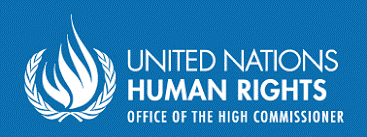 Human Rights Committee
Human Rights Committee
Gareth Anver Prince v. South Africa
Communication No. 1474/2006 of 14 November 2007 [CCPR/C/91/D1474/2006]
Fatima Anderson v. Denmark
Communication No. 1868/2009 of 14 September 2010 [CCPR/C/99/D/1868/2009 (2010)]
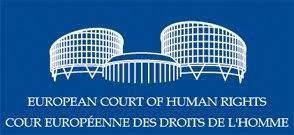 European Court of Human Rights
European Court of Human Rights
Serif v. Greece
Application No. 38178/97 of 14 March 2000
Molla Sali v. Greece
Application No. 20452/14 of 18 June 2020
İzzettin Doğan and Others v. Turkey
Application No. 62649/10 of 26 April 2016
S.A.S. v. France
Application No. 43835/11 of 1 July 2014
Ancient Baltic religious association Romuva v. Lithuania
Application No. 48329/19 of 8 September 2021
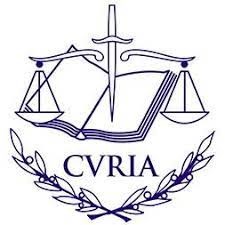 Court of Justice
Court of Justice
Bundesrepublik Deutschland v. Y (C‑71/11), Z (C‑99/11)
Judgment of the Court (Grand Chamber) of 5 September 2012
READ MORE
Institutional experts UN Special Rapporteur on freedom of religion or belief UN Special Rapporteur on minority issues OSCE High Commissioner on National Minorities (HCNM)

 MENU
MENU